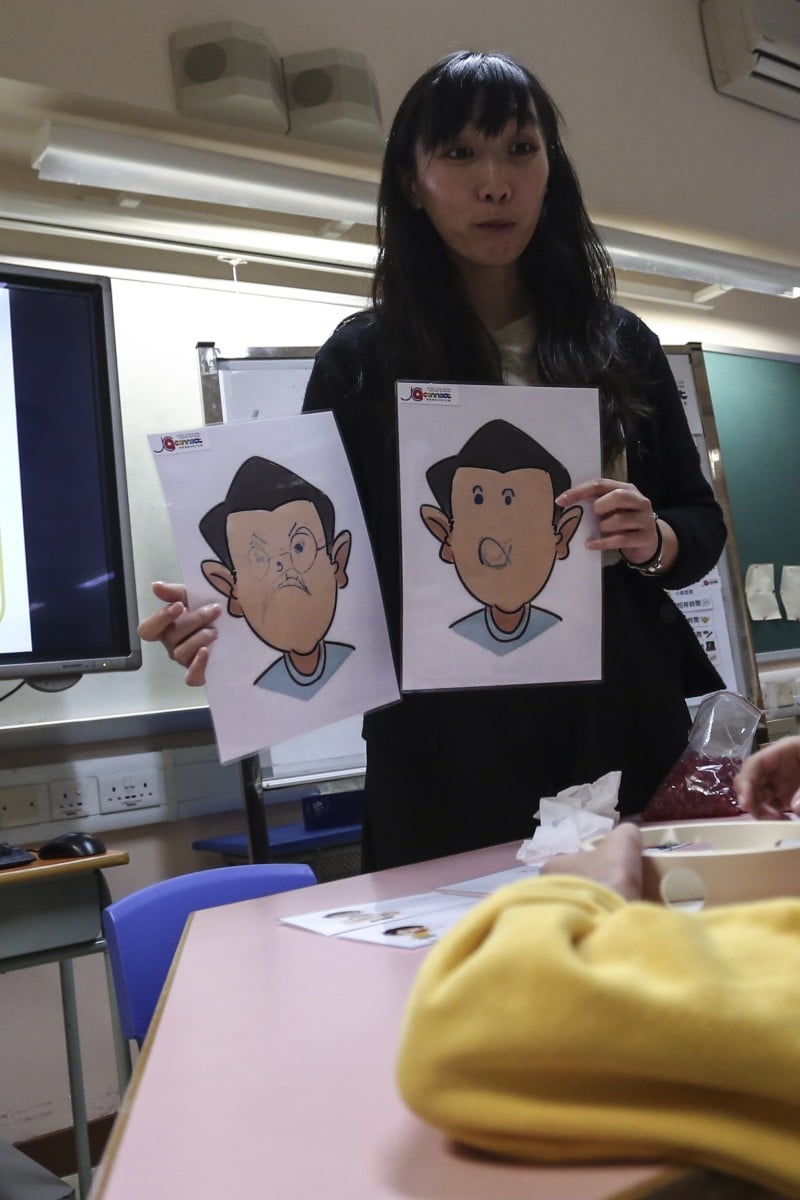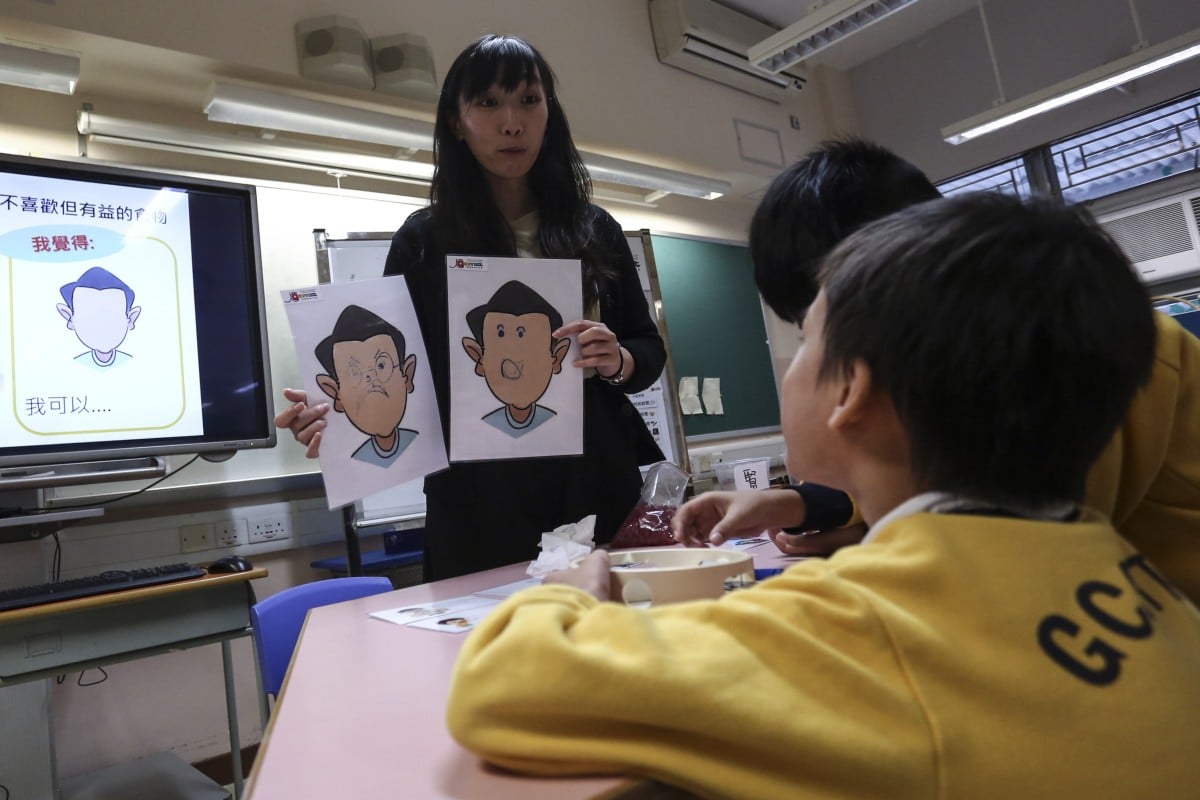
Face Off: Are Hong Kong schools sensitive enough to students with special needs?
- Each week, two of our readers debate a hot topic in a showdown that doesn’t necessarily reflect their personal viewpoints
- This round, they discuss whether the city’s educational system is suitable for learners with unique needs
 Anna Ho Oi-yung coaches autistic students with special education needs at the GCCITKD Cheong Wong Wai Primary School. Photo: Jonathan Wong
Anna Ho Oi-yung coaches autistic students with special education needs at the GCCITKD Cheong Wong Wai Primary School. Photo: Jonathan WongIf you are interested in joining future Face Off debates, fill out this form to submit your application.
For: Hong Kong has made significant efforts to support students with special needs
Valerie Shek, 12, Independent Schools Foundation (Secondary)
Hong Kong has adopted a unique approach towards educating students with special education needs (SEN students), offering a dual-track system that allows students to choose between schools specifically made for their needs or mainstream schools.
According to a report titled “Special Education and Integrated Education in Hong Kong”, published in 2020, the city had 60 special schools with a total number of 7,939 students during the 2018/2019 school year, while a 2018 audit showed 42,890 SEN students were studying at Hong Kong’s 844 public sector ordinary schools.
The government has worked hard to ensure that every child has equal access to education and provides the necessary resources, including training for teachers, to address the challenges that students with special needs face in their academic and social development.
Number of special needs ethnic minority students in Hong Kong underestimated: NGO
To achieve these goals, the government allocates a significant amount of funds to special education, with around HK$3.2 billion budgeted in the financial year of 2018-2019, according to Legislative Council figures. This funding provides necessary support and services such as speech therapy, occupational therapy, counselling services, and assistive technology.
Furthermore, the integrated education programme promotes communication and coordination between parents, teachers, and health professionals so that students with special needs receive the necessary services to support their development while learning in a typical classroom environment.
Though there is always room for improvement, Hong Kong has made significant efforts to support students with special needs in recent years. The government has subsidised projects to make the school grounds more inclusive, barrier-free (adding things such as ramps, lifts and accessible toilets for students with physical impairments) and has been able to increase the number of students receiving support.
The government’s inclusive education policy, infrastructure and facilities, student support services, and increasing numbers of students receiving support all demonstrate the sensitivity of Hong Kong schools to students with special needs.
Against: We need more sensitive, diverse and accessible schools
Emily Cen, 12, Independent Schools Foundation (Secondary)
Hong Kong has made significant progress in providing education for SEN students in recent years. However, there is still an ongoing discussion around the perceived lack of sensitivity within the education system towards these students.
Hong Kong’s approach to educating SEN students aims to provide individualised education to meet students’ unique requirements. While children may choose to attend a specialised school, there is still an emphasis on integrating these students into mainstream schools as soon as possible.
However, “ordinary” Hong Kong schools are often unsuitable for SEN students for reasons including a lack of accessibility, teacher training, and language barriers.
Firstly, many schools in Hong Kong are not physically accessible for students with special needs. Excessive stair climbing, crowded hallways, and unsuitable bathrooms are all obstacles students with physical disabilities need to face. Instead, schools could add lower handles, bathrooms for those with disabilities, ramps, and accessible tables and chairs for those with disabilities. These would all tremendously help students.
How sign language and dance have helped Deaf performer express himself
Secondly, many teachers in mainstream institutions lack the training needed to create a suitable classroom environment for special needs students.
According to the SCMP, only about 40 per cent of teachers in ordinary schools have training in SEN, which could affect their ability to understand and support SEN students. SEN students may need help understanding instructions or participating in classroom activities, finding it hard to fit in and participate in group projects.
And since many teachers need more training, they may blame their students for not understanding tasks or contributing in class. If teachers could receive more training, they would be able to understand their students’ needs and alter their lessons to assist them.
The ignorance towards problems like these makes life for SEN students even more tiring. I urge the Hong Kong government to establish more sensitive, diverse, and accessible schools that could create a more comfortable environment for students with special needs.
